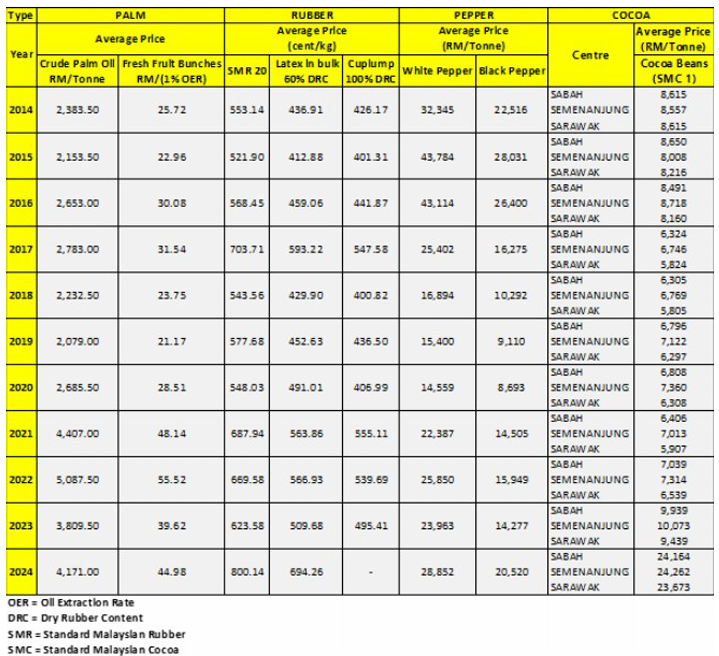Written by Irhamy Ahmad, Founder and Managing Director of Irhamy Valuers International
Malaysia, a global agricultural powerhouse, relies heavily on commodities like palm oil, rubber, cocoa, and pepper, which experienced significant shifts between 2014 and 2024 due to global trends and policies.
Palm oil, Malaysia’s flagship export, palm oil, faced rising demand for sustainable practices, prompting the adoption of the Malaysian Sustainable Palm Oil (MSPO) certification to address environmental concerns and deforestation.
Rubber, the rubber industry transitioned to value-added products like gloves and tires. While COVID-19 boosted demand, growth slowed post-pandemic amid competition from regional producers.
Cocoa, focusing on premium processing rather than raw production, Malaysia emphasized high-quality cocoa products. Despite competition from West Africa, niche markets for artisanal and single-origin chocolates sustained demand.
This table below presents the average price of several major commodities in Malaysia, for the years 2014 to 2024. The table is self-explanatory, providing a clear comparison of price reflecting the market trends over the years.

Table 1: Average Price of Commodities (2014-2024)
Looking ahead, Malaysia’s ability to balance economic growth with sustainability and innovation will
determine the future trajectory of its major commodities. With global demand for responsibly sourced products on the rise, Malaysia’s commitment to quality and sustainability positions it to remain a key player in the international agricultural landscape.
